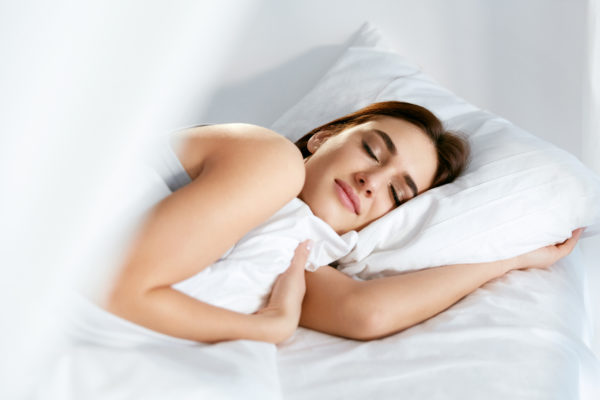What Is Sleep Hygiene & Why Is It Important?
What’s So Important About Good Sleep Hygiene?
Sleep hygiene, in brief, is incorporating daily routines and having a healthy bedroom environment to promote good quality sleep. Sleep hygiene is achieved when we can establish healthy sleep habits that allow us to maintain a consistent sleep schedule and avoid things that would disrupt sleep. So, why is it important?
In this blog, Sleep Firm will discuss the importance of having a relaxing bedtime routine, good sleep hygiene practices, and understanding what works best for your body in order to have a restful sleep.
The importance of sleep hygiene –
Humans are really good at forming habits, especially habits that serve a long-term interest. Those habits could be anything, from our gym routines and our eating patterns, to even the times we go to bed and when we wake up.
Establishing a regular sleep schedule, or having quality sleep hygiene, is a habit that plays a serious role in disease control and improved sleep. Healthy sleep habits are integral to chronic disease prevention, reduced daytime sleepiness, and can help our nervous system hone in on what we need to do in a day. Quality sleep is like a healthy diet. We need it to function.
Poor sleep, or sleep deprivation, can make us feel tired throughout the day, raise the stress hormone cortisol (which, in excess amounts, can contribute to the development of Cushing’s Disease), and may even risk the development of a sleep disorder.
Getting enough sleep is crucial to your health. Here’s how you can do it:
Sleep hygiene tips

Establishing good, consistent bedtime habits are integral to quality sleep hygiene. Part of what makes it difficult to establish consistent sleep patterns is the presence of distractions. Here are some tips to help you fall asleep – a “sleep hygiene checklist,” if you will – and good sleep habits:
Implement a fixed wake-up time.
It can be tempting to sleep in for hours and hours come the weekend, but grudgingly force yourself to get up at gruelling hours on weekdays. Instead, opt for a more sound sleep by implementing a fixed wake-up time and trying to get up about the same time each day, regardless of what day of the week it is. A fluctuating sleep-wake cycle can mess up how rested you feel during the daytime and contribute to sleep problems.
Make small changes gradually.
Have you ever had jet lag from flying overseas? Ever tried to jump back into your normal schedule? It’s never a good feeling, and it rarely works. If you have trouble sleeping and you’re trying to implement healthy habits, do so gradually. It can throw your schedule out of whack if you try to do everything at once.
Avoid napping where possible.
Napping is often seen as a great way to catch up on lost sleep. Unfortunately, as great as they are, they can throw off your nighttime sleep cycle. To get a good night’s rest, avoid napping if you can. If you desperately find you need to nap, try to limit your napping to 30 minutes at most and do so earlier in the day for better sleep at night.
Use proper bedding and a comfortable mattress.
We believe in quality bedding material that makes you excited to go to bed. A comfortable, quality mattress will combine innovative design with quality that helps support your spine and promotes sleep quality so you can get restful sleep and awake feeling refreshed. Sleep Firm offers firm mattress designs at a competitive price.
Establish a nightly routine.
Preparing yourself for bed and prioritising sleep with a solid routine can be one of the best ways to improve your sleeping habits. Avoid watching TV or using any device that might emit blue light when it gets close to bedtime. You should turn off all screens up to 2 hours before you want to go to sleep. Do some light reading, relaxation exercises, talk to your partner, stretch a little – budget at least half an hour to wind yourself down before it’s time to turn off the lights.
Falling asleep can be difficult for people who don’t have an optimal sleep environment. As part of your nightly routine, dim your lights, use a white noise machine, and ensure optimal body temperature by ditching the heavy duvet in the summer and cozying up in the winter.
Signs of poor sleeping hygiene

Having an insufficient sleep pattern can impact our everyday lives. If you are having sleeping problems, then you might have noticed a few of the following symptoms:
- Poor concentration and focus
- Mood swings (you’re more irritable)
- You feel groggy when you wake up
- You doze off while doing idle activities
- Yawning frequently
Sleep disorders can also be to blame for having poor sleeping habits and can make it harder to fall asleep. If you believe you might have a sleeping disorder, it’s important to consult a physician to discuss your next steps.
Better sleep for public health
Not getting enough sleep has been linked with numerous chronic diseases and conditions, including heart disease, obesity, depression, and even type 2 diabetes. When we are promoting public health, we are promoting healthier diets, physical fitness, and proper sleep hygiene.
Too few adults get enough quality sleep, and a lack of sleep health can drastically impact your health. This is all to say that getting a good night’s sleep is crucial to your health. We hope these sleep tips have helped you!
A better night’s sleep with Sleep Firm
A Sleep Firm mattress holds its support for years to come while maintaining your body’s proper alignment during the night. Our mattress can help you get a better night’s sleep if you suffer from back issues. We build firm mattresses like no other. Contact Sleep Firm today for a firm mattress that holds its shape.


 FREE & FAST Shipping*
FREE & FAST Shipping*